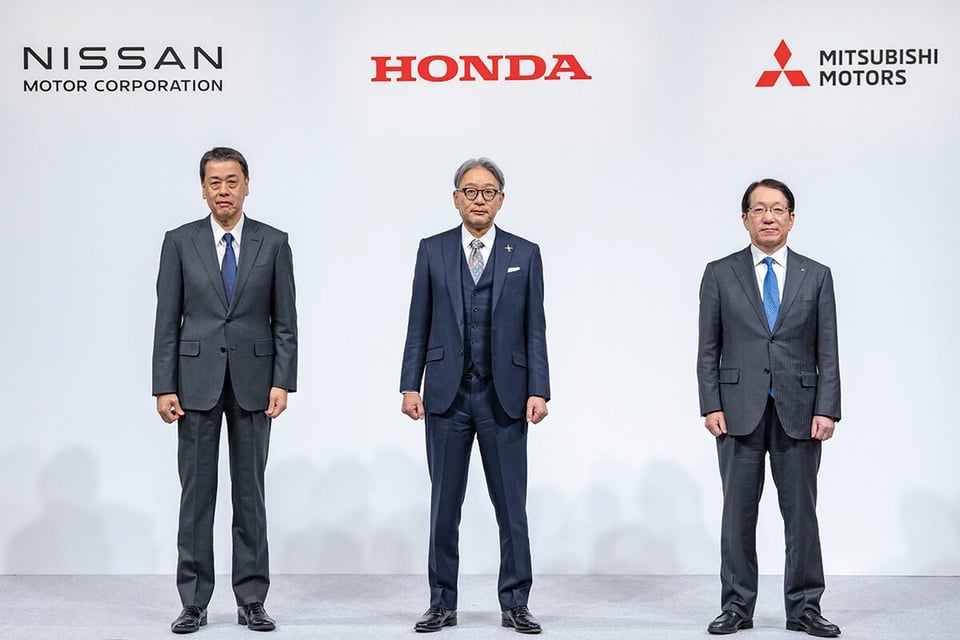Japan’s Nissan may cancel merger discussions with rival Honda, as reported by the Nikkei newspaper. This decision would abandon a partnership that could have formed the world’s third-largest automaker and raises concerns about how Nissan will manage its turnaround independently.
Shares in Nissan slid more than 4 percent before trade was temporarily suspended by the Tokyo Stock Exchange following the report. However, Honda shares closed 8.2 percent higher, having soared nearly 12 percent during the session, in a sign of apparent investor relief that the deal would be scrapped.
Honda, Japan’s second-largest car maker, and Nissan, its third-largest, last year said they were in discussions to merge and create the world’s third-largest automaker by sales, bulking up in an industry that faces a vast threat from China’s BYD and other electric vehicle entrants.
Honda had sounded out Nissan about becoming a subsidiary, one of the people said, adding that such an arrangement was a departure from the spirit of discussions originally framed as a merger of equals.
Nissan and Honda said in separate statements that the Nikkei report was not based on information announced by the companies and that they aimed to finalize a future direction by mid-February and announce it at that time. The development raises fresh questions about how hard-hit Nissan could ride out its latest crisis without external help. Nissan is in the middle of a turnaround plan, aiming to cut 9,000 employees and twenty percent of global capacity.

Read more: Nissan, Honda kick off merger discussions in new deal
Honda’s concern over Nissan’s turnaround
Honda, with a market value nearly five times bigger than Nissan, was increasingly worried about its smaller rival’s progress on the turnaround plan, said the other person.
The tie-up talks have coincided with the disruption posed by potential tariffs from U.S. President Donald Trump. Tariffs against Mexico would be more painful for Nissan than for Honda or Toyota, according to analysts.

Challenges for foreign brands in China
Business has been tough for foreign brands in China, where electric vehicle manufacturers such as BYD are leading the way as demand grows for less polluting vehicles. China overtook Japan as the biggest vehicle exporter last year, thanks to government support for EVs.
Honda and Nissan are Japan’s No. 2 and No. 3 automakers after Toyota. They agreed last year to explore a partnership on EV software and components, among other technologies. Mitsubishi Motors joined this initiative in August.








